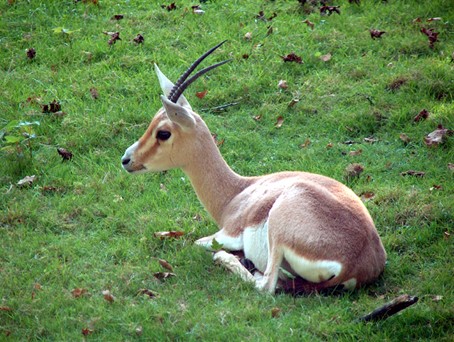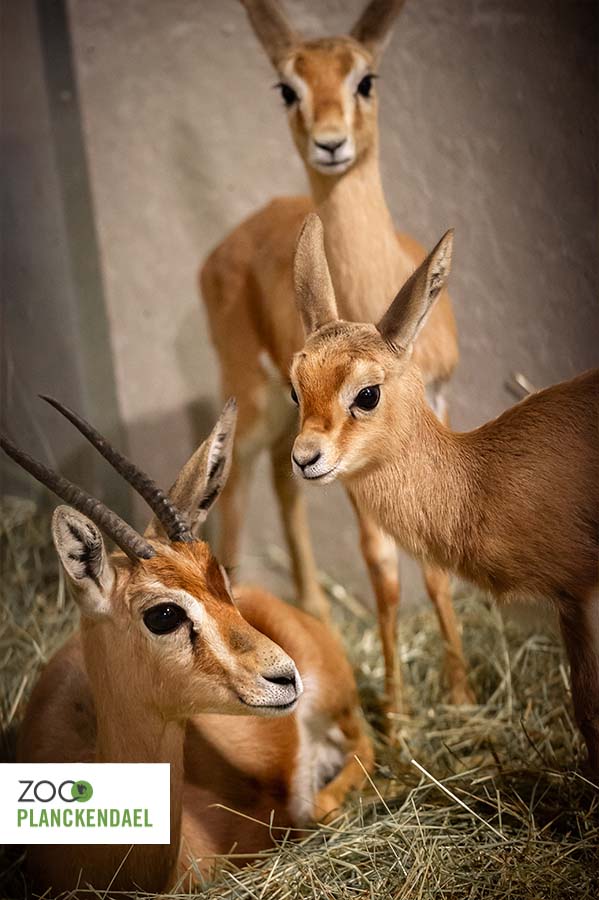Since 2020, the Multi Masters Group has been sponsoring endangered or vulnerable species through Planckendael ZOO. A mere look at our corporate logo explains our preference for ‘deer’. Initially we sponsored the dune gazelle and nowadays we sponsor the Dorcas gazelle.
In support of endangered and vulnerable species
Four years ago, the Multi Masters Group decided to support endangered and vulnerable animal species. We first needed to determine which animal was the best match for our company. A simple look at our corporate logo supplied the answer: we wanted to help deer. To avoid any misunderstandings, let us state that the animals depicted on our logo are not deer, but springboks, as evidenced by the name of our magazine.
We discussed the matter with Planckendael ZOO and it emerged that springboks are not an endangered species, unlike some of their close relatives, like the dune gazelle.
‘Guido’ the dune gazelle
Sponsoring the dune gazelle at Planckendael ZOO
Therefore, we decided to sponsor the dune gazelle or slender-horned gazelle. Only about 250 of these animals survive in the wild. A single dune gazelle lived in Europe, we learned, notwithstanding the multitude of animal parks there. It happened to live at Planckendael ZOO.
Before long, the dune gazelle became a mascot in our company. Our employees went to look for our sponsoree in the animal park. The animal was even given a name. For four years It was known as ‘Guido Gazelle’ in the Multi Masters Group, in a facetious reference to the 19th-century writer Guido Gezelle.
Guido Gazelle died
In March, sad news reached us. ‘Our Guido’, who had reached an advanced age, had died. The general manager of Planckendael ZOO called us in person to bring the news. He added that no other dune gazelle was to be found in all of Europe. This fact once more brought to our attention the impact of climate change, the main factor, together with hunting, in the near extinction of the dune gazelle in the wild.
Sponsoring the Dorcas gazelle at Planckendael ZOO
We decided shortly afterwards that this misfortune would not be allowed to cast a shadow over our support of endangered and vulnerable species. After consulting the Zoo, we decided to sponsor the Dorcas gazelle, also known as the ariel gazelle, at Planckendael ZOO.
A vulnerable species
Although not on the path to extinction like the dune gazelle, the Dorcas gazelle warrants attention. A few decades ago, about 40,000 Dorcas gazelles roamed the rocky plains of northern Africa, an environment with sparse vegetation. Hunting, overgrazing and climate change have reduced their numbers by more than 30 per cent in the last 15 years. As a result, the IUCN (International Union for Conservation of Nature) describes their population as ‘vulnerable’, which gives us an additional reason to support these graceful animals.
Dorcas gazelles at Planckendael ZOO
What are the distinctive features of Dorcas gazelles?
The Dorcas gazelle looks like its cousin, the dune gazelle. Its fur is yellowish to red brown with a discrete side line. There are clear lines on the muzzle. The head is crowned with lyre-shaped horns. The height at the withers is over 50 cm and gazelle weight ranges from 15 to 30 kilos. Life expectancy is up to 12 years. When this herbivore flees, it runs with bouncing jumps. Dorcas gazelles live in pairs in harsh environments and, when conditions are more favourable, they gather in family herds with one adult male, several females and their offspring.
Five sponsorees
A herd like this resides at Planckendael ZOO. It is a group of five Dorcas gazelles, including two fawns. One of those was born on Christmas eve and was given the fitting name of Yesus. In early 2024, another fawn was born: welcome Zorro! As a result, the Multi Masters Group now sponsors five gazelles, rather than one.
Pictures © ZOO Planckendael / Jonas Verhulst


